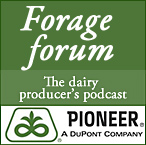Since 1986, an animal rights activist group called Farm Sanctuary has rescued various farm animals who were abandoned or from slaughter. Currently, with over a $5.7 million dollar budget and more than a thousand animals living in two locations, the group, like other animal rights groups, is taking a softer tactic to try and reach consumers and effect animal farming practices.
As Farm Sanctuary has grown, so too has its influence. Soon, due in part to the organization’s work, veal calves and pregnant pigs in Arizona won’t be kept in cages so tight they can’t turn around. Eggs from cage-free hens have become so popular that there is a national shortage. A law in Chicago bans the sale of foie gras. And earlier this month, the New Jersey Supreme Court agreed to hear a case concerning common farming practices that a coalition led by Farm Sanctuary says are inhumane.
All of these developments reflect the maturation and sophistication of Mr. Baur and others in a network of animal activists who have more control over America’s dinner table than ever before.
But in recent years they have adopted more subtle tactics, like holding stock in major food corporations, organizing nimble political campaigns and lobbying lawmakers.
While some groups, like the Animal Welfare Institute, work with ranchers to codify the best methods of raising animals for meat and eggs, most, like Farm Sanctuary and People for the Ethical Treatment of Animals, ultimately want people to stop using even wool and honey because they believe the products exploit living creatures.
But all of these believers have learned that with less stridency comes more respect and influence in food politics. So they no longer concentrate their energy on burning effigies of Colonel Sanders and stealing chickens. They don’t demonize meat — with the exception of foie gras and veal — or the people who produce it. Instead, they use softer rhetoric, focusing on a campaign even committed carnivores can get behind: better conditions for farm animals.
Certainly, concerns over health and food safety, and a growing interest in where food comes from among consumers and chefs, has made animal welfare an easier sell. Technology has helped savvy activists deliver their message, too — specifically mass e-mail, easily concealed cameras and the ability to quickly distribute images online, like footage of slaughterhouses and the 2004 spoof “The Meatrix.” They have also learned to harness the power of celebrity in a tabloid culture, courting as spokespeople anyone famous who might have recently put down steak tartare in favor of vegetable carpaccio.
The image makeover has been so successful that a 2006 survey of 5,000 people ages 13 to 24 showed that PETA was the nonprofit organization most would like to volunteer for, according to the market research firm Label Networks. The American Red Cross was second.
Like PETA, the Humane Society has purchased enough stock in corporations like Tyson, Wal-Mart, McDonald’s and Smithfield’s to have the legal clout to introduce resolutions. Like Mr. Baur, Mr. Pacelle understands that not everyone is going to stop eating animals, so he focuses on what he calls the three R’s: refinement of farming techniques, reducing meat consumption and replacement of animal products. That way, he hopes, the Humane Society tent is big enough to include both ardent meat eaters and hard-core vegans.

 With rising corn prices, a clear understanding of total-tract starch digestibility is as important as ever, says Dr. Bill Mahanna, coordinator of global nutritional sciences for Pioneer Hi-Bred. Additionally, Bill explains the differences when starch is digested in the rumen of the cow versus in the intestine, and how this balance works. New research and tests are giving producers a better understanding of starch digestibility, and Bill touches on these highlights.
With rising corn prices, a clear understanding of total-tract starch digestibility is as important as ever, says Dr. Bill Mahanna, coordinator of global nutritional sciences for Pioneer Hi-Bred. Additionally, Bill explains the differences when starch is digested in the rumen of the cow versus in the intestine, and how this balance works. New research and tests are giving producers a better understanding of starch digestibility, and Bill touches on these highlights.
 Value added is a term used in a lot of different places but not one you normally hear associated with milk. But that’s changing. There are some new kinds of milk in the dairy case these days. The
Value added is a term used in a lot of different places but not one you normally hear associated with milk. But that’s changing. There are some new kinds of milk in the dairy case these days. The 
 Brian Baxter was busy at last week in Denver between the Dairy and Beef Checkoff meetings taking place. Here’s one of the reports he put together for the
Brian Baxter was busy at last week in Denver between the Dairy and Beef Checkoff meetings taking place. Here’s one of the reports he put together for the 